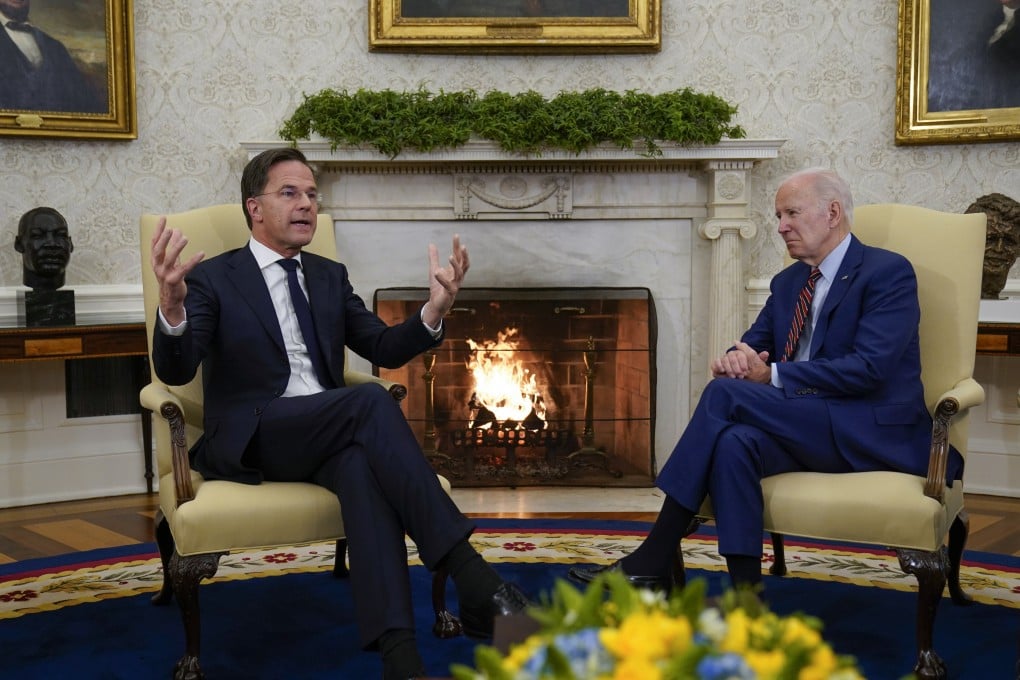Advertisement
Opinion | Joe Biden’s trade war with China is driving a wedge between the US and Europe
- Europe is pushing back against US demands for it to stop selling semiconductor technology to China
- Brussels’ insistence on setting its own trade terms with China is a win for Beijing – even if EU-China tensions persist elsewhere
Reading Time:3 minutes
Why you can trust SCMP
2

Dutch Prime Minister Mark Rutte’s trip to Washington this week is the latest effort by Europe to ease unprecedented US demands for manufacturers based on the continent to buttress the Biden administration’s ban on exports of chip-making tools to China.
Advertisement
The growing friction between the allies may allow Beijing to triangulate Brussels against Washington, especially given the economic interdependencies between Europe and China – but EU-China relations are fraught with tensions, too.
China now accounts for almost 35 per cent of the global market for semiconductors, reflecting sales of finished chips to companies that have large manufacturing operations concentrated in China. But the United States and, increasingly, Europe dominate in chip designs and manufacturing processes – at least for the moment in a rapidly-evolving industry.
Washington wants to ensure its own lead by preventing China from quickly acquiring technologies used in weapons systems, supercomputing and artificial intelligence. It also wants to protect itself against supply-chain vulnerabilities, another national security priority.
A slew of proposals announced by President Joe Biden last October seeks to do so, first, by pressuring allies not to share with China any manufacturing technologies based on US technologies and, second, by barring through licensing requirements any “US persons” or US-based companies from providing semiconductor-related assistance to China.
Advertisement
On another front, the Chips Act, enacted in August, provides financial support to widen the global lead of the US semiconductor sector over competitors, a neo-mercantilism endeavour to dominate the US$590-billion industry.

Advertisement
